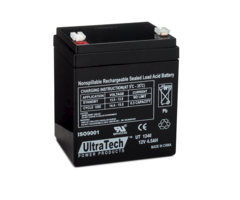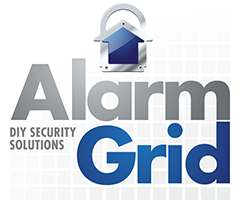How Does the Backup Battery for an Alarm System Work?
The backup battery for an alarm system works by slowly storing power while the panel is running on AC power. Once AC power is lost, the battery will activate to keep the system running. A backup battery can only power a system temporarily. It is a short-term fix until AC power is restored.
 Keeping an alarm system powered on at all times is very important. When a system is powered off, monitoring service cannot be provided, and the home or business is left unprotected. That is why security systems have backup batteries to ensure that they always remain powered on. The shape and size of the backup battery will typically depend upon the alarm panel that is being used. Wireless all-in-one panels will usually have a small battery pack that plugs into the main system board. Wired panels use larger batteries that look like miniature car batteries. Despite their size, they can still be secured inside the same metal enclosure as the panel. But in any case, the main purpose of the battery is the same. It's designed to keep a system and its accessories working properly when the power is out.
Keeping an alarm system powered on at all times is very important. When a system is powered off, monitoring service cannot be provided, and the home or business is left unprotected. That is why security systems have backup batteries to ensure that they always remain powered on. The shape and size of the backup battery will typically depend upon the alarm panel that is being used. Wireless all-in-one panels will usually have a small battery pack that plugs into the main system board. Wired panels use larger batteries that look like miniature car batteries. Despite their size, they can still be secured inside the same metal enclosure as the panel. But in any case, the main purpose of the battery is the same. It's designed to keep a system and its accessories working properly when the power is out.

When a system is running on the AC power provided from its plug-in transformer, its backup battery is slowly storing a small amount of power. This way, it will be ready to activate when AC power is lost. This can be due to an electrical outage, or it could be because the transformer was unplugged or disconnected. The panel will display an AC loss condition so that you are aware that AC power was lost. The system will remain running on backup power for as long as the battery is able to keep the system powered on. Most batteries can keep a system running for between four (4) and 24 hours. Refer to the specifications for the panel and the battery you are using for an estimated duration of power time. Keep in mind that a battery can only provide temporary power. A system should use AC power whenever possible.
One important thing to consider when using a backup battery for an alarm system is that it will also keep the system's communicator running. This is what allows the system to connect with a cellular and/or internet network for service. If the communicator goes offline, then monitoring service will be lost, so keeping this piece of equipment running is very important. But if you are using internet-only monitoring, then your modem and router must also be kept online in order for your panel to maintain connectivity. If this equipment does not have its own battery backup, then a power outage will take it offline, and your system will be left unmonitored, even if its internet communicator remains active. That is why many users will invest in cellular communicators for security systems. Cellular communicators speak with cell towers, which are unaffected by normal power outages. In addition, cellular connectivity is more reliable, and it is much less susceptible to random outages like internet connectivity. Overall, a cellular communicator represents the best way to keep a system monitored during a power outage. Just keep in mind that you will need a monitoring plan that includes cellular connectivity if you are wanting to set up cellular monitoring service for your system.
Another thing to remember about backup batteries is that they will eventually lose their ability to store a charge. This usually happens after about three (3) to five (5) years of use, though it can vary depending upon the model. Once a battery is no longer able to store an adequate charge, the system will display a low-battery warning message. This is the same warning that you will get if no battery is detected by the system, or if the battery has been allowed to drain too much, without being given an opportunity to recharge while the system is running on AC power. If you encounter a low-battery trouble condition on your system, then try giving the battery 24 hours to recharge while the system is running on AC power. Make sure that AC power is not lost or disturbed during this time. Then try to clear the trouble condition by following the steps appropriate for your panel. If you cannot clear the low-battery message, or if your system displays low battery then restores when there has been no AC loss condition, then it is likely that you need a replacement. Make sure to purchase an appropriate battery for your system.
Did you find this answer useful?
We offer alarm monitoring as low as $10 / month
Click Here to Learn MoreRelated Products




Related Videos
Related Categories
- Answered








